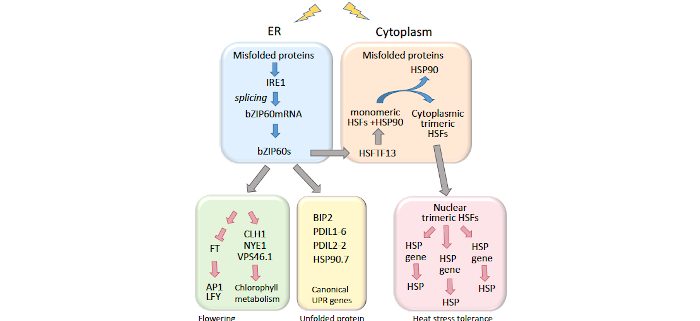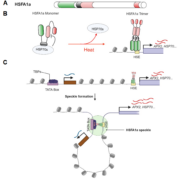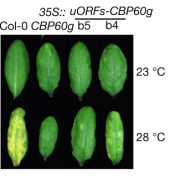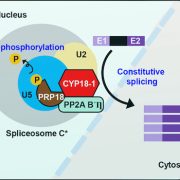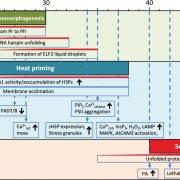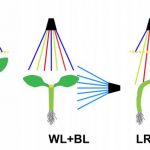Together at last: The UPR and HSR
Li et al. identify a link between the unfolded protein response and the heat shock response.
Plant Cell https://doi.org/10.1105/tpc.20.00260
By Zhaoxia Li and Stephen Howell
Plant Sciences Institute, Iowa State University, Ames, Iowa USA
Background: In the face of climate change, heat stress tolerance is a critical trait in crop plants. Plants have evolved different mechanisms for responding to heat stress and to protect themselves from the damaging effects of high temperature. One mechanism is the unfolded protein response (UPR) in the endoplasmic reticulum (ER) of cells. Heat interferes with protein folding in the ER and when unfolded proteins accumulate the UPR is activated. The UPR activates genes that help proteins fold in the ER and aid in mitigating the damage caused by heat. Another mechanism by which plants respond to heat is through the heat shock response (HSR) in the cytoplasm. In the HSR, heat shock transcription factors are transported from the cytoplasm into the nucleus to turn on a different set of genes that encode heat shock proteins (HSPs). The HSPs likewise prevent protein misfolding and keep them from aggregating in response to heat. Therefore, the UPR and HSR both respond to heat stress, but they operate in different cellular compartments.
Question: The UPR and HSR are thought to function independently in their different cellular compartments, but is there any linkage between them?
Findings: We found a link by which the UPR contributes to the HSR in maize. One of the UPR genes that is activated by heat is a powerful transcription factor, called bZIP60. It is activated in a unique way by splicing of its mRNA so that the mRNA encodes a form of bZIP60 that can be imported into the nucleus. bZIP60 then targets the expression of a heat shock transcription factor that is central to the HSR. Thus, this major product of the UPR activates the transcription of a factor in the HSR which, in turn, upregulates the expression of a constellation of HSPs.
Next steps: These experiments were carried out in a controlled environment facility called the Enviratron. We can use this system to incrementally change different combinations of environmental conditions to be able to predict how plants will respond to small changes in environmental conditions expected to happen as a result of climate change.
Zhaoxia Li, Jie Tang, Renu Srivastava, Diane C. Bassham and Stephen H. Howell. (2020). The Transcription Factor bZIP60 Links the Unfolded Protein Response (UPR) to the Heat Stress Response (HSR) in Maize. Plant Cell; DOI: https://doi.org/10.1105/tpc.20.00260


